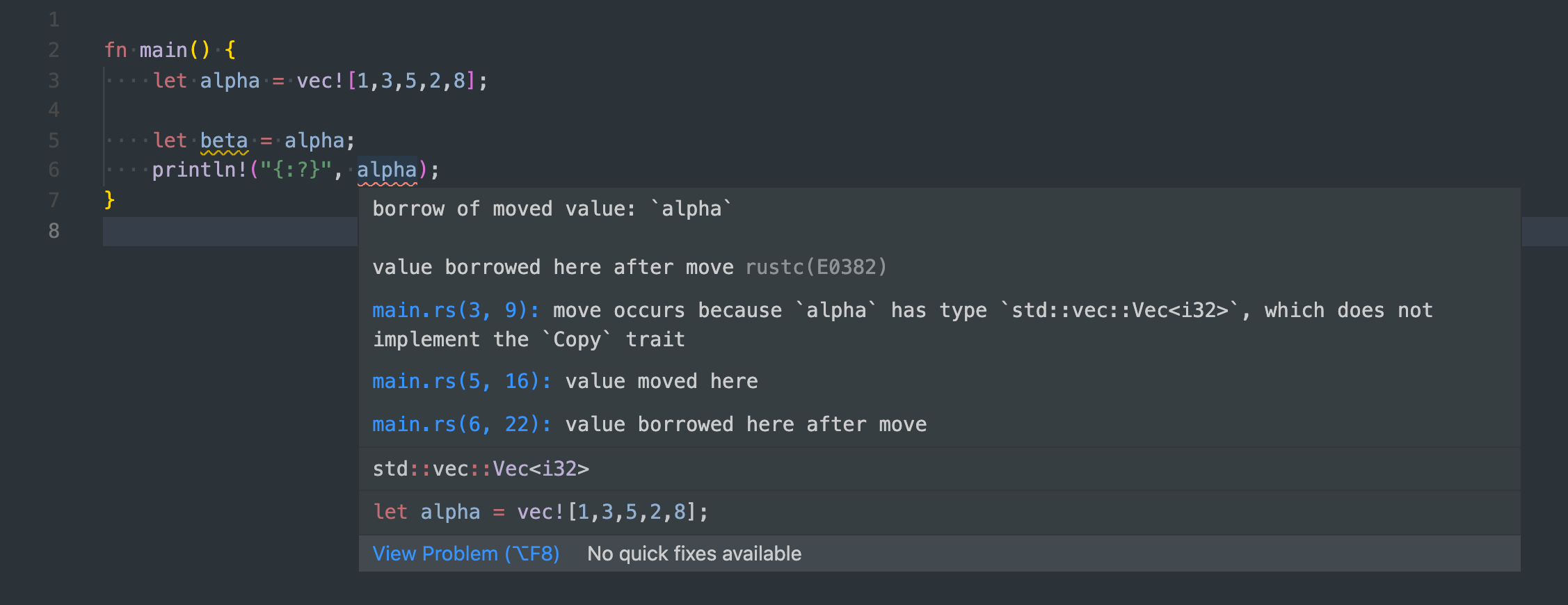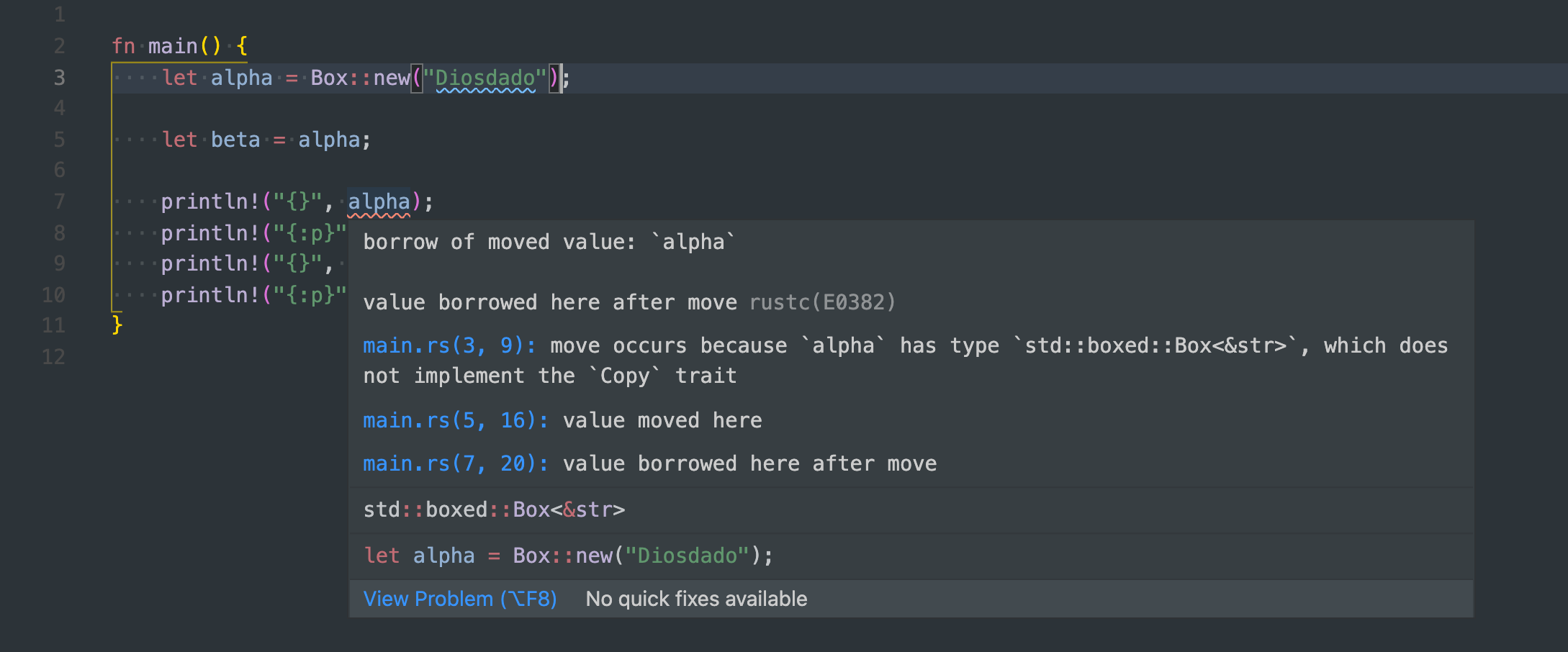Variable Ownership and Borrowing in Rust

One of the central concepts of Rust is variable ownership, and Rust implements rather strict rules around what variables have access or control over what resources at a given time to prevent race conditions or other mangling of data. In general, there is only one variable that binds to a resource at a time. The exception here will be with primitives as I will show later. So lets see this in action.
Collections
One of my main languages currently is Python so I will start first by showing an example of code running in Python, that when done in Rust causes a violation of Rust's ownership principals.
alpha = [1, 2, 3, 4]
beta = alpha
print(alpha)
This code prints out the list alpha just fine.
[1, 2, 3, 4]
Inspecting the pointer values of both alpha and beta via Python's id() method reveals that both variables now posses the same memory address pointing to the list. Heres the equivalent code in Rust.
let alpha = vec![1,3,5,2,8];
let beta = alpha;
println!("{:?}", alpha);
Attempting to compile this however results in the following error

error[E0382]: borrow of moved value: `alpha`
--> src/main.rs:6:22
|
3 | let alpha = vec![1,3,5,2,8];
| ----- move occurs because `alpha` has type `Vec<i32>`, which does not implement the `Copy` trait
4 |
5 | let beta = alpha;
| ----- value moved here
6 | println!("{:?}", alpha);
| ^^^^^ value borrowed here after move
error: aborting due to previous error; 1 warning emitted
Whats happening here is that on line 3 where beta is assigned to alpha, control of the original vector resource sitting in the memory heap is given to beta, and beta exclusively, while alpha is invalidated for use until control is explicitly handed back to it. This prevents situations where two different variables might make changes to a single resource at different times, which can cause race conditions or unexpected data modification depending on how those variables are used. One way to hand control back would be to use a closure, where variable reassigned within closures can be used again onces outside the closure.
If in this situation you simply want beta to be a copy of all the values in alpha (thus making them two different vectors with the same starting data), you can make use of Rust's .clone() method, documented here.
This rule around ownership follows for all collections in Rust, like vectors, arrays, dictionaries, sets, etc. However with primitive types the situation is a bit different.
Primitives
Copying of primitive types is very cheap as primitives are not pointers to data on the heap like a collection. Their size is known at compile time so they are stored entirely on the stack. As such, when you do the same sort of reassignment, Rust simply copies the value over into a new resource and assigns it to your variable as seen below.
let alpha = "Diosdado";
let beta = alpha;
println!("{}", alpha);
println!("{:p}", &alpha);
println!("{}", beta);
println!("{:p}", &beta);
Which results in
Diosdado
0x7ffee15ea010
Diosdado
0x7ffee15ea020
So everything works just fine and the new resource is created with the same value, but different pointers. One small wrinkle here is that the above example uses a string literal, not the String type, which is instead a heap allocated collection with a pointer. Strings behave just like the vector examples in the previous sections.
Boxing
If however you would like the same sort of behavior observed in collections, but with a primitive type, Rust can do that! Rust contains a feature called "boxing" documented here that allows you to create a pointer for heap allocation for any type. If we wished to box Mr. Diosdado we would do it like so.
let alpha = Box::new("Diosdado");
let beta = alpha;
println!("{}", alpha);
println!("{:p}", &alpha);
println!("{}", beta);
println!("{:p}", &beta);
And now we're back to the same "moved" error as before.

Also shout out to the VS Code Rust extensions fantastic hover documentation tips and overall visual error tools.

Stay Rusty my friends.
